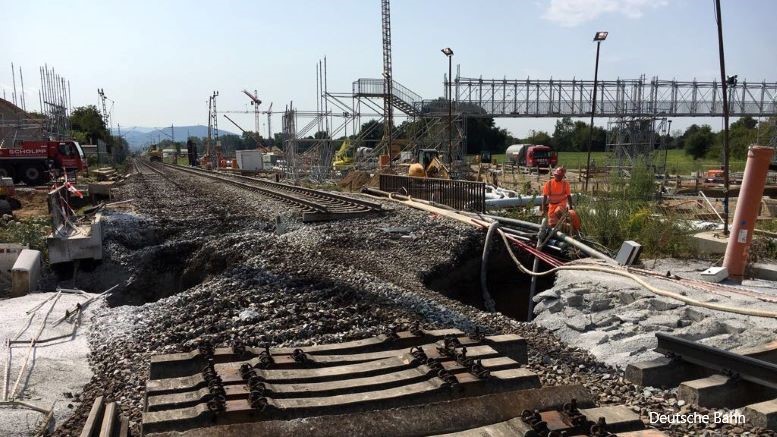
The Rail Freight Forward coalition has published a contingency management handbook in an effort to avoid major disruption to the European railway network, such as happened at Rastatt in 2017 when a tunnel under construction collapsed, closing the Rhine Valley railway for six weeks.
The handbook describes how railway undertakings should cooperate with each other and with infrastructure managers. It outlines scenarios of resource pooling between undertakings in order to best manage large incidents, and the regulatory mitigation measures that would be needed to make that possible. These measures will allow the rail sector to maximise use of infrastructure capacity during a major international disruption. Such an incident can, both in duration and scale, jeopardise major trade flows and risk undermining customer confidence in rail’s resilience as a transport mode.
The Rail Freight Forward is a coalition of European rail freight companies that are committed to drastically reduce the negative impact of freight transport on the planet and mobility, through innovation and a more intelligent transport mix. In its 2018 report “30 by 2030 – Rail Freight strategy to boost modal shift”, it makes mention of contingency management plans and promotes their adoption by all railway undertakings.
Current Rail Freight Forward members are BLS Cargo, CD Cargo, CFL Multimodal, DB Cargo, GreenCargo, Lineas, LTE Group, Mercitalia, Ost-West Logistik, PKP Cargo, Rail Cargo Group, Renfe Mercanias, SBB Cargo, SNCF Logistics, ZSSK Cargo. The coalition is supported by railway organisations CER, ERFA, UIC and VDV.



Be the first to comment